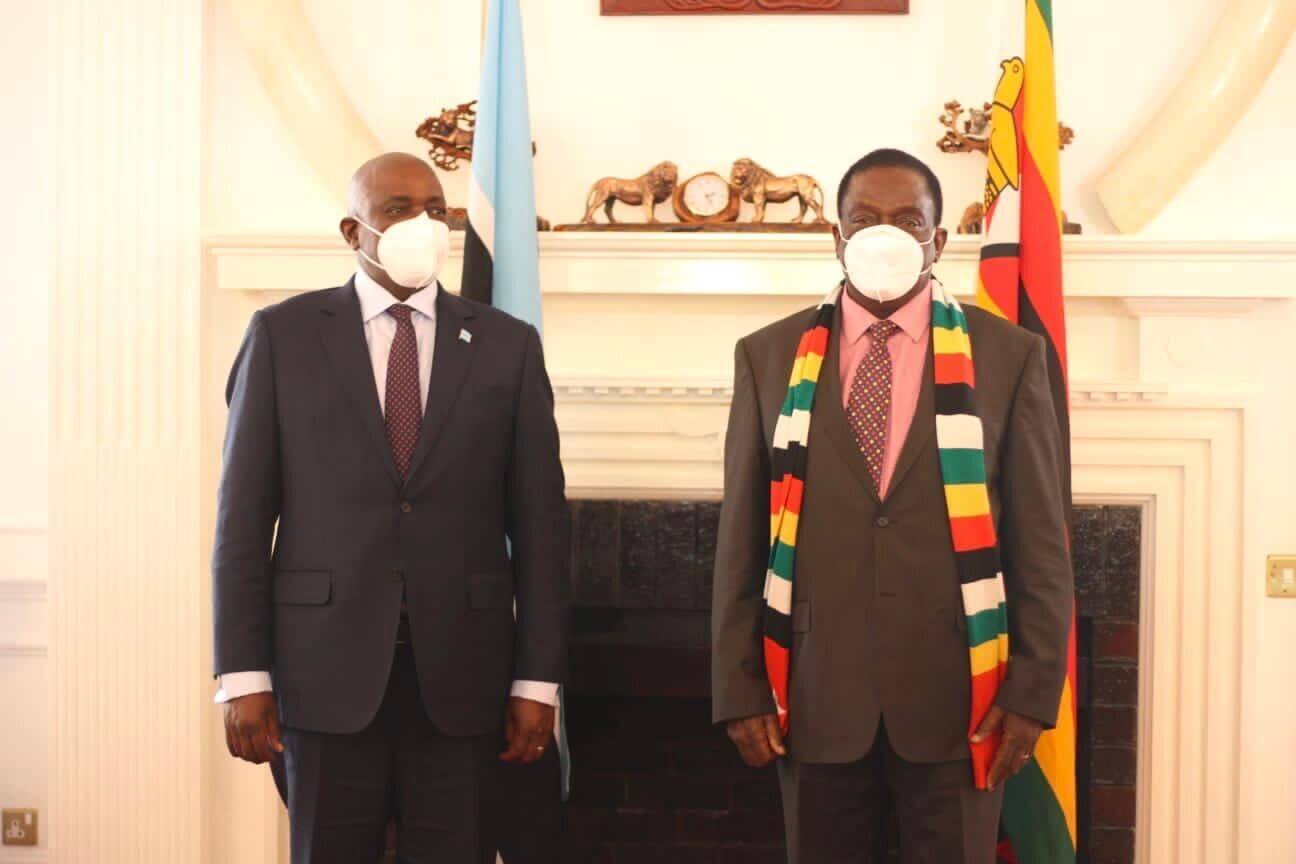Zimbabwean President Emmerson Mnangagwa and Botswanan President Mokgweetsi Masisi met in Harare on Wednesday to discuss the Southern African Development Community’s (SADC) response to the Islamist insurgency in Mozambique’s Cabo Delgado region. The regional bloc is reportedly planning to launch a military intervention, and follows an attack by militants on the coastal town of Palma last week, when dozens were killed and thousands were displaced.
At the bilateral meeting, Mnangagwa, who is the rotating head of the SADC’s peace and security division, said that Masisi had briefed him on “what is happening in Cabo Delgado”. Meanwhile, Masisi said that the SADC must “respond in a helpful manner to ensure that we assure the integrity and sovereignty of one of our own, never to be assaulted by dissident, rebellious and non-state-actor force”.
The African Union (AU), too, has waded in on the ongoing instability in Mozambique, with AU Commission Chairperson Moussa Faki Mahamat calling for “urgent and coordinated regional and international action”. Mahamat further said that the AU is “ready to support the region and its mechanisms to jointly address this urgent threat”.
The latest attack on Palma was particularly significant, as the town is situated close to French energy giant Total’s $20 billion liquefied natural gas (LNG) project, which involves multiple international stakeholders. In fact, Total suspended its offshore gas extraction operations in December and evacuated multiple staff.
The United Nations (UN) has also expressed alarm at the enduring conflict in Mozambique, with UN Office for the Coordination of Humanitarian Affairs (OCHA) spokesperson Jens Laerke warning of a rapidly escalating humanitarian and refugee crisis, with thousands already fleeing to Tanzania. To this end, he called for international actors to contribute $254 million in aid to the country. At this time, only 1% of this amount has been raised.
On Monday, Portuguese Foreign Affairs Minister Augusto Santos Silva announced that Lisbon had deployed a team of 60 soldiers to the northern coast of Mozambique. The United States (US), too, has soldiers in the region.
Furthermore, the Mozambican government has also hired a number of international private security firms, such as South African private military company Dyck Advisory Group (DAG), to “protect mining installations and offshore rigs”. However, it has been reported that these private contractors are now assuming a more central role in “deliver[ing] supplies to government forces, hunt[ing] militants from the air, and attack[ing] them with guns and bombs”. Rights group Amnesty International says that this has created a situation in which these firms have often taken the law into their own hands and fired at civilians.
Amnesty’s report claims: “According to 53 witnesses who spoke to Amnesty International, DAG operatives have fired machine guns from helicopters and dropped hand grenades indiscriminately into crowds of people, as well as repeatedly fired at civilian infrastructure, including hospitals, schools, and homes.”
Given these allegations, DAG has since announced that it will not renew its contract with the Mozambican government.
The oil and gas-rich province of Cabo Delgado has become a battleground for Islamist groups, who have attacked police stations, killed government officials, and stolen weapons from the military. In fact, a few months ago, armed militants captured the small harbour town of Mocimboa da Praia, taking over the town’s port and its armoury, indicating the extent of their power and influence in the province.
This is particularly concerning, as it may indicate the surrender of crucial resources to terror groups. The town’s port represents a strategic and economic foothold, given that both Total and ExxonMobil have liquefied natural gas projects just a short distance away. This could potentially cut into oil and gas revenue, which is one of the key contributors to poverty reduction in the country.
The terror outfits operating in the region have been linked to both the Islamic State (IS) and Somali terror group al-Shabab, and it is thought that the militants are entering Cabo Delgado via Kenya, Tanzania, and northern Mozambique.
In a country where over 56% of the population is Christian and just 18% is Muslim, terror groups have capitalized on anger and frustration from decades of disenfranchisement, marginalization, and unemployment among the minority Muslim community. For instance, following the discovery of oil and gas deposits in Cabo Delgado, the government licensed “the entire district of Montepuez to mining companies, leaving communities without land to grow their food”.
Aside from fostering tensions between different religious groups, the intense conflict has also led to the displacement of over 700,000 people and the deaths of at least 2,600. This has left tens of thousands of people, many of whom were subsistence farmers, entirely dependent on humanitarian aid.
Meanwhile, it has also led to cross-border tensions, as terrorists have crossed over into Tanzania, where they have raided villages, razed homes, and killed dozens. These developments have generated unrest in Zimbabwe and South Africa as well, which, alongside the loss of crucial energy resources, perhaps explains why the SADC is on the brink of announcing a military intervention in Mozambique.
SADC Plans Military Intervention in Mozambique Following Portugal’s Deployment of Forces
Zimbabwean President Emmerson Mnangagwa and his Botswanan counterpart Mokgweetsi Masisi discussed the SADC’s plans to launch a military intervention in Mozambique’s crisis-torn Cabo Delgado region.
April 2, 2021

Botswanan President Mokgweetsi Masisi (L) and Zimbabwean President Emmerson Mnangagwa in Harare SOURCE: PRESIDENT OF ZIMBABWE
